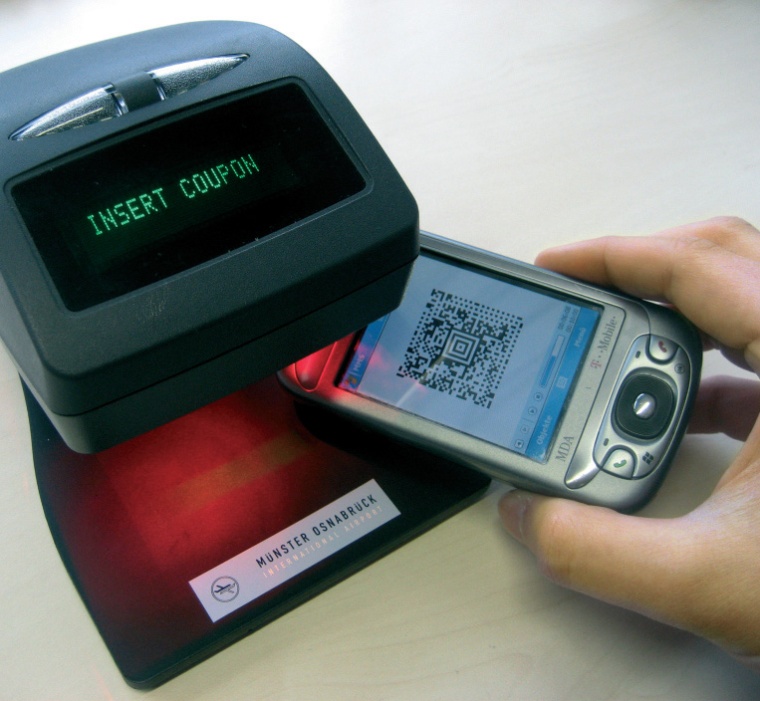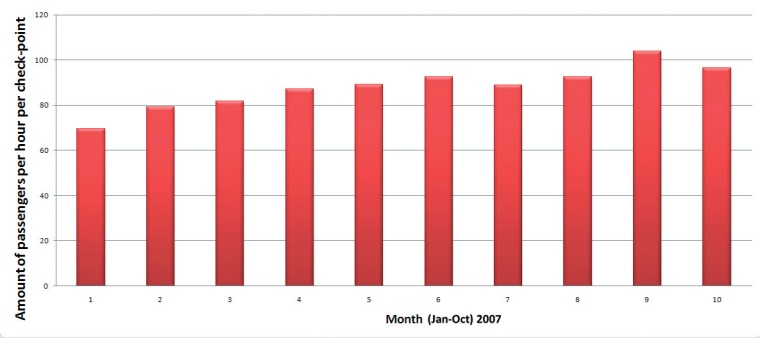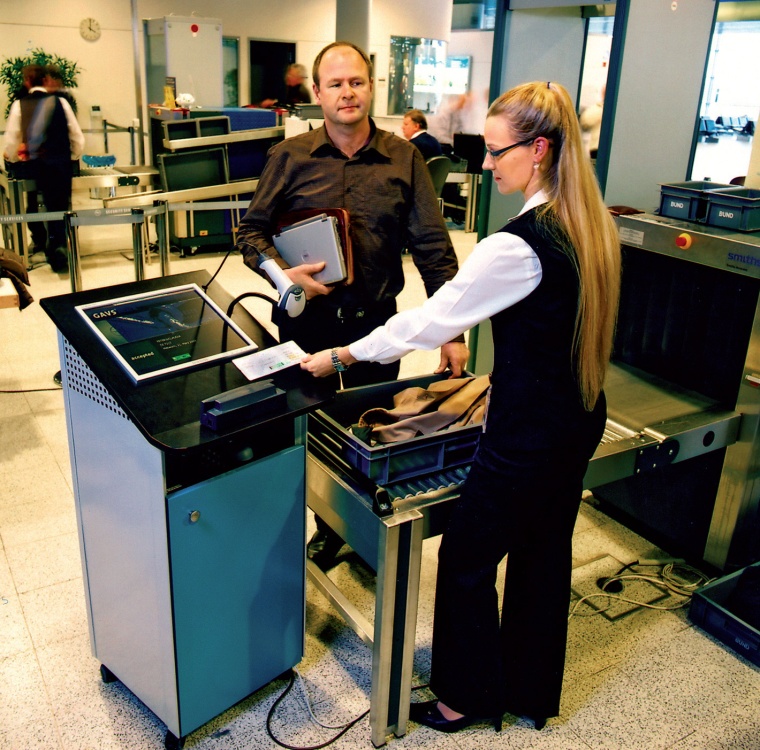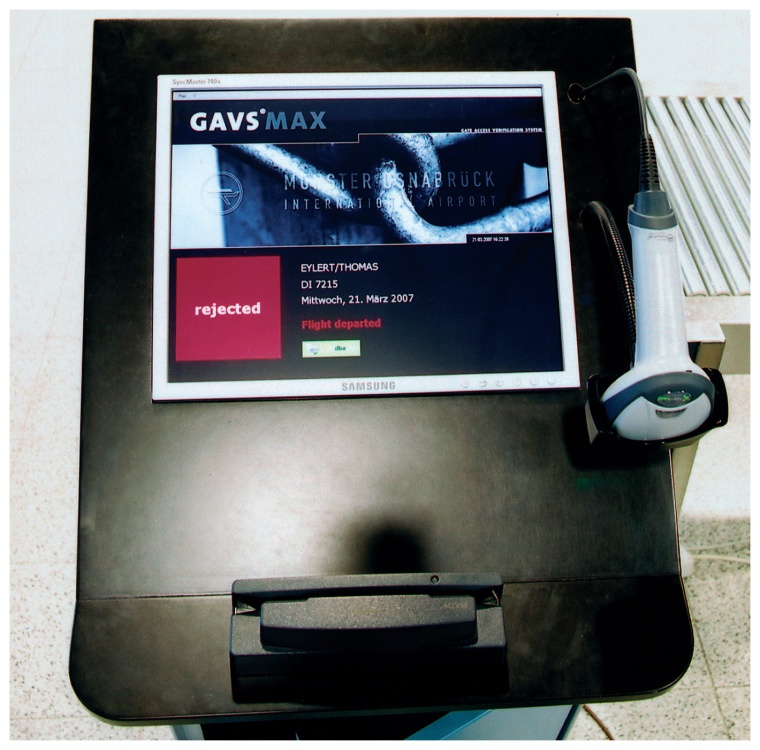FMO: an approach to improve efficiency at security check-points
FMO: an approach to improve efficiency at security check-points. These days, a lot of airports are involved in projects implementing the new technical standards for passenger handl...




FMO: an approach to improve efficiency at security check-points. These days, a lot of airports are involved in projects implementing the new technical standards for passenger handling: 2D barcode boarding passes printed at self-services-terminals, at home or sent to the passenger’s mobile phone. Security staffs at airports need a tool to keep their security standards up-to-date.
Following IATA’s “Simplifying The Business” initiative, many airlines are currently changing their passenger check-in processes. IATA expects the amount of passengers using the “traditional” check-in desks at the airport to decrease rapidly within the next few years. Airlines and handling agents are pushing the usage of selfservice-terminals, home check-in, and mobile check-in with mobile phones to reduce costs and needed terminal space. These new issues lead to problems for the staff in charge of checking the boarding passes at the security check point.
A New Check-in System
In 2006, as one of the first airports worldwide, Münster/Osnabrück International Airport (FMO) implemented a new check-in system which fully supports the new 2D barcode boarding passes for all airlines operating at FMO. One important goal of the project was to significantly improve the quality of the boarding pass control, which has been carried out manually so far. Thanks to the long-standing experience of FMO‘s IT department, which has been gained through operating and maintaining the check-in system for many years, it was possible to develop a strategy to solve that problem.
Fundamental experience was required. FMO invented a new system and gave it the name GAVS. In August 2006 the GAVS (Gate Access Verification System) project was founded. IT and security staff successfully co-operated to find a practical solution. The first idea was to develop a product which would be able to communicate directly with different DCS at the airport. This idea was quickly buried due to the amount of bureaucracy which would have been involved in a system of this quality.
The main question was what needed to be checked:
- Authenticity of the boarding passes,
- validity period of the boarding passes,
- frequency of boarding pass use.
GAVS is a software suite which automatically verifies the validity of the boarding passes. The verification result is shown like traffic lights. Green – accepted; yellow – attention; red -rejected. The system allows a variety of different ways of checking boarding passes, no matter if the passenger presents a standard (old) magnetic-stripe-boarding pass or any other barcode boarding pass including those on mobile phones (see fig. 1).
The system is owned, operated and maintained by the airport’s IT department. It is totally independent from any airline host (DCS) or check-in system. It collects the processed data and stores it in a database. The backend-interface delivers various reports about system usage, passenger flow and peaks (see fig. 2). It is also a useful tool for statistical analysis and accounting purposes.
GAVS also offers benefits for baggage processing: If a check-in piece of baggage fails to pass the screening system, its owner can be contacted at the check point for a manual baggage check. Therefore GAVS is linked to the BRS. GAVS is also a plus for handling agents: The boarding agent can look up a passenger‘s name in a web interface linked to the GAVS database to see if a passenger has already passed the check point.
This helps to decide if a missing passenger should be waited for. The feeling of security has greatly improved. The passengers accepted the new system straight away. At the moment, FMO is working on new system features such as turnstile/automatic door support. With this new release, GAVS can be operated in self-service-mode.
Another option that will be available is a mobile GAVS solution, which will be operated in a WiFi environment.
Contact:
Francisco Rodriguez
FMO Münster/Osnabrück International Airport, Greven, Germany
Tel.: +49 2571 94 1400
Fax: +49 2571 94 9650
gavs@fmo.de
www.fmo.de/gavs
most read

Training at Fraunhofer SIT: Strengthening resilience against cyber attacks
Knowledge in cyber security is evolving rapidly - continuous training is therefore important.

When the Internet stumbles: Why DNS is important
When DNS fails, the internet stumbles-AWS outage proves resilience and redundancy are vital for digital trust

Assa Abloy's battery-powered Aperio KL100 secures lockers
Boost workplace security and operational flexibility by securing more than just doors.

Airbus Defence and Space: Security as a strategic pillar of Europe's defense capability
Airbus Defence and Space protects sites, technologies and employees with modern security and cyber solutions - strengthening Europe's resilience in uncertain times

Integrated and Futureproof: Traka’s Next Chapter
Interview with Stefni Oliver on Traka’s Vision for the Future








